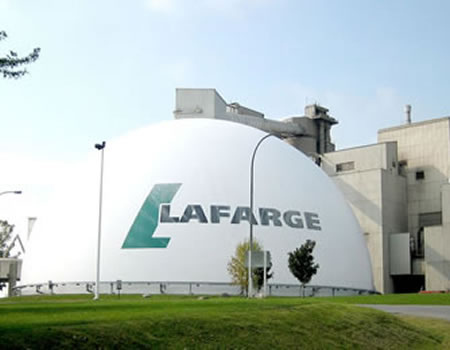
The 2030 Plan is supportive of the UN Sustainable Development Goals and consists of four pillars: Climate, Circular economy, Water & Nature, People and Communities.
Each target comes with a set of quantitative targets such as reducing emissions, deriving energy from waste and developing initiatives that will impact 75 million people across the world. The theme for the 12-year plan is “Building for tomorrow.”
Folashade Ambrose-Medebem, Director of Communications, Public Affairs & Sustainable Development of Lafarge Africa said, at Lafarge, sustainability was a core value and business strategy.
“It’s part of what we do wherever we operate. Some of the world’s biggest challenges like urbanization, housing and climate change are visible in Nigeria. The 2030 Plan is our way of providing sustainable solutions to these challenges within and outside our operations,” she said.
Resource scarcity alongside urbanisation, climate change and housing needs are some of the challenges the world faces today, especially in emerging economies like Nigeria.
Michel Pucherchos, CEO of Lafarge Africa said, “LafargeHolcim, of which we are a subsidiary, is not only the world’s largest building solutions company but one with a rich history of sustainability. This enables us to adapt quickly and proffer sustainable and innovative solutions in markets like Nigeria where the growth potential is immense but must be sustained for future generations.”
Of late, the cement maker has either adopted or sponsored sustainable innovations within and outside its operations. For instance, use of alternative fuel and the Lafarge National Literacy Competition.
As part of its alternative fuel strategy, Lafarge is using local alternative energy sources at its plants across the country. At Ewekoro in Ogun State, almost half of the energy generated in one of its kilns comes from palm kernel shaft and shells. Last
November, it concluded the fourth literacy competition, an annual competition only for public primary school students from across the country. Two students from Edo State won this year’s competition.
WATCH TOP VIDEOS FROM NIGERIAN TRIBUNE TV
- Relationship Hangout: Public vs Private Proposals – Which Truly Wins in Love?
- “No” Is a Complete Sentence: Why You Should Stop Feeling Guilty
- Relationship Hangout: Friendship Talk 2025 – How to Be a Good Friend & Big Questions on Friendship
- Police Overpower Armed Robbers in Ibadan After Fierce Struggle





